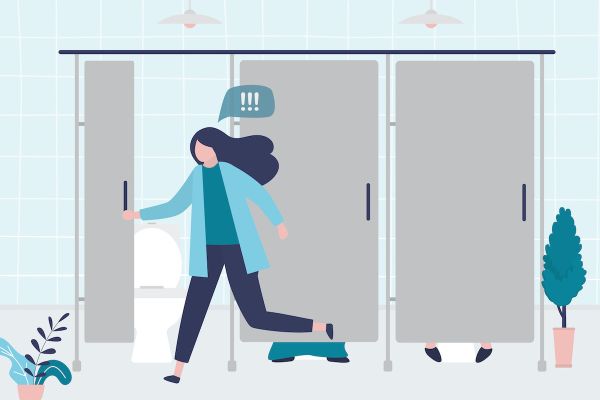Roswell Park provides latest treatments to address quality of life
There’s nothing convenient about urinary incontinence, also called overactive bladder. No matter what you call it, leaking urine involuntarily comes with significant physical and emotional impacts for the millions of people who worry about embarrassing accidents during work, travel, social gatherings, sleep and even laughing.
If this sounds like you, you’re not alone. Overactive bladder is quite common, affecting about 50% of women and 25% of men and it increases in frequency with age. “Patients’ physical, social and psychological well-being are always negatively impacted by urinary incontinence,” says John DeBerry III, MD, a general urology specialist and surgical oncologist at Roswell Park’s Care Network location on Wehrle Drive in Williamsville. “It’s a condition that affects people's lives at home, at work and social settings. It affects productivity, self-esteem and quality of life.”
Posterior tibial nerve stimulation offers additional choice
Doctors at Roswell Park are now offering a new treatment — posterior tibial nerve stimulation — in addition to other options such as pelvic floor rehabilitation, bladder Botox and sacral nerve stimulation. This convenient, innovative and minimally invasive treatment is proving to be more effective than medications.
Treatment for overactive bladder typically begins with first-level interventions, including physical and behavioral changes such as drinking less fluid in the evening to reduce nighttime bathroom visits, daily Kegel exercises, or sessions with a physical therapist who specializes in pelvic floor therapy to strengthen the muscles of your pelvic floor.
Level two treatments typically involve medications. Patients that still have problems after first- and second-level treatments are not effective, may benefit from a level three treatment which can include posterior tibial nerve stimulation. Treatment includes inserting a small needle, attached to a stimulator, in the ankle. A medical device sends a mild electric current up the leg to the tibial nerve and sacral plexus, which regulates bladder spasms. The current can be adjusted for the comfort of every patient.
“Posterior tibial nerve stimulation may take a few sessions for improvements to begin but there’s no medication involved, there are no side effects, and it can be used for every age. It's 80% effective and it is minimally invasive,” says Dr. DeBerry, who notes that people typically experience greater than 50% improvement. The procedure requires twelve, 30-minute sessions, conveniently conducted in the Roswell Park Care Network Wehrle Drive office.
Life after cancer
Roswell Park offers many services to address ongoing or new symptoms resulting from your cancer care.
Other third-level treatments include bladder Botox and sacral nerve stimulation, a therapeutic technique that involves electrical stimulation to the sacral nerve root to reduce urges and help control both the bladder and bowel. “We’re continuing to explore new and minimally invasive approaches and treatments while maintaining surgical and oncologic principles when required. It’s gratifying to see more patients improve the quality of their life without surgery or medication whenever it’s possible.”
Roswell Park quality care closer to home
The Wehrle Drive location is one of Roswell Park’s newest sites in their growing Care Network and provides cancer diagnosis and treatment as well as general urology services. As a Care Network member, Dr. DeBerry collaborates with other Roswell Park specialists and experts, benefiting from an integrated approach for optimum patient care. “We’re in a new location but we're not new to the field," says Dr. DeBerry, who brings three decades of experience to the new Roswell Park location. “We’re able to expand our reach to patients with this beautiful facility that houses the most modern equipment available for evaluation, diagnosis and treatment. In addition to treating a variety of cancer issues, we offer specialized care to patients with urinary incontinence, erectile disfunction, kidney stones, urinary tract infections and sexual dysfunction conditions.”




